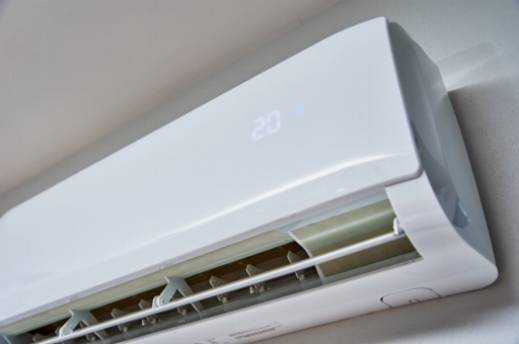Air Filter Replacement: The DIY Home Maintenance Task You Can't Afford to Ignore.
22 November 2025 by Miles H.As a homeowner, it's important to prioritize regular maintenance tasks to ensure that your living space remains in good condition. One such crucial task is the replacement of your air filter. Neglecting this simple DIY project can lead to a variety of issues, from poor air quality to inefficient heating and cooling systems. In this article, we'll explore the importance of air filter replacement, how to identify when it's time for a change, and provide a step-by-step guide on how to complete this essential home maintenance task. Additionally, we'll cover troubleshooting common issues, maximizing the benefits of a clean air filter, and maintaining your air conditioning and heating system for optimal performance.

Understanding the Importance of Air Filter Replacement
Air filter replacement is an essential aspect of home maintenance that is often overlooked by many homeowners. The air filter plays a crucial role in maintaining the air quality and efficiency of your heating and cooling system. Over time, the air filter becomes clogged with dust, dirt, and other airborne particles, which can restrict airflow and reduce the system's performance. This can lead to increased energy consumption, higher utility bills, and potential damage to the HVAC system. Additionally, a dirty air filter can also result in poor indoor air quality, leading to health issues for you and your family. Therefore, regular air filter replacement is imperative to ensure the smooth functioning of your heating and cooling system and to maintain a healthy living environment in your home.Identifying When to Replace Your Air Filter
One of the most important aspects of maintaining a healthy and efficient home environment is knowing when it's time to replace your air filter. A sure sign that it's time for a replacement is when the filter becomes visibly dirty or clogged. Additionally, if you notice increased dust in your home, reduced airflow from your vents, or a musty odor when your HVAC system is running, these are all indicators that it may be time to replace your air filter. It's recommended to check your air filter every 30 days to ensure it's still functioning properly.Selecting the Right Air Filter for Your Home
When it comes to selecting the right air filter for your home, there are a few important factors to consider. First, you'll want to think about the size of your HVAC system and the specific dimensions required for the air filter. Additionally, you'll need to consider the MERV (Minimum Efficiency Reporting Value) rating of the filter, which indicates its efficiency in removing particles from the air. It's important to choose a filter with the appropriate MERV rating for your home, as filters with higher ratings can restrict airflow if they're not compatible with your system. Finally, you may want to consider additional features such as electrostatic or HEPA filters, which can further improve the air quality in your home. By carefully considering these factors, you can ensure that you select the right air filter to keep your home's air clean and your HVAC system running smoothly.Step-by-Step Guide on How to Replace Your Air Filter
Replacing your air filter is a simple yet crucial task in maintaining a healthy and efficient home environment. Here is a step-by-step guide on how to replace your air filter:1. Locate the air filter: The first step is to locate the air filter in your home. In most cases, the air filter is located behind the return air grille on the wall or ceiling, or within the blower compartment of your HVAC system.
2. Turn off the system: Before removing the old air filter, it is important to turn off your heating or air conditioning system to ensure safety and prevent the circulation of dust and debris.
3. Remove the old air filter: Carefully remove the old air filter from its housing. Take note of the size and airflow direction indicated on the filter, as this information will be important when installing the new filter.
4. Inspect the filter housing: While the old filter is removed, take a moment to inspect the filter housing for any dust or debris buildup. Use a damp cloth to clean the area if necessary.
5. Install the new air filter: Position the new air filter in the housing, ensuring that it is installed in the correct direction of airflow. Make sure the filter fits snugly to prevent air bypass.
6. Secure the filter: Replace the filter grille or blower compartment cover, securing the new filter in place.
7. Restart the system: Once the new air filter is installed, it is safe to turn your heating or air conditioning system back on. By following these simple steps, you can ensure that your home's air filter is replaced correctly, allowing for improved air quality and system efficiency. Regularly replacing your air filter is an essential aspect of home maintenance that should not be overlooked.